Business and Development …
Memphis ought to be used to crazy, impossible blockbusters by now.
For example, it may be tough to remember that the Pyramid was once a dim, vacant, hopeless reminder of good times gone by instead of a game-changing outdoor retailer, hotel, restaurant, bowling alley, shooting range, and gator pit with the best view in town. Weird, right? Who saw that coming?
The coming year promises a ton of similar projects, the kind of projects that make you marvel that someone could imagine the thing in the first place — and that teams of people had the guts and determination (and money) to pull it off.
But taking something old and making it new again is just how we do. You can call it “adaptive re-use” if you want. We’re just going to call it the Memphis Way, something that sets us apart from, ahem, other cities of music.
Crosstown Concourse
This is without a doubt the blockbuster-est of 2017 blockbusters. Crosstown is a $200 million renovation project for 1.1 million square feet, about 17 football fields spread across 10 floors. The mammoth structure closed in 1993 and sat dormant, vacant, and hopeless for years, until energy formed around the project, beginning with the formation of the nonprofit Crosstown Arts in 2010. More money was raised, tenants were signed, and work crews have mobbed the place since 2014.
Crosstown will officially open on May 13th, with a day-long celebration of music, food, speeches, and all the rest. But residents of Parcels at Crosstown, the apartments inside the building, will begin moving in on January 2nd, according to Todd Richardson, project leader for the Crosstown Development project.
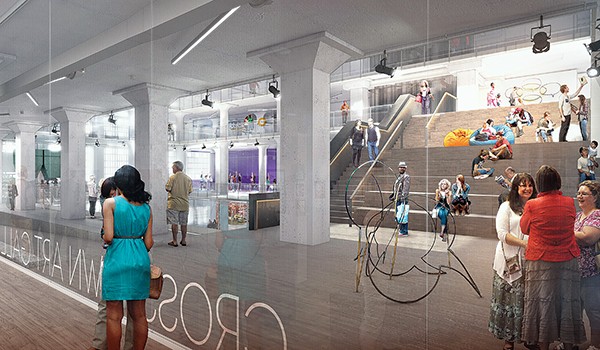
Crosstown Concourse
Business tenants, including Tech901, Memphis Teacher Residency, the Poplar Foundation, Pyramid Peak Foundation, and Church Health Center will start moving in next month, as well. Richardson expects all of the 31 business tenants, except Crosstown High and the American Lebanese Syrian Associated Charities (ALSAC), to be moved in by May.
“We have a healthy panic about us, in terms of shifting from construction to operations,” Richardson said. “I always say once we finish construction we’re about 50 percent done.” The other 50 percent, Richardson said, is the “magic” of Crosstown, the people, the programming, and the activity of the place.
Expect construction inside the building to last at Crosstown for a full year and a half after the celebration — on tenant projects and the high school. Construction of the new, 425-seat performing arts theater will begin next month and continue through June of 2018.
Here’s a list of all the other tenants expected to move into Crosstown: A Step Ahead Foundation; Daniel Bird, DDS; the YMCA; Christian Brothers University; City Leadership; The Curb Market; Crosstown Arts; Crosstown Back and Pain Institute; FedEx Office; French Truck Coffee; G4S; Hope Credit Union; Juice Bar; Methodist Le Bonheur Healthcare; Mama Gaia; Madison Pharmacy; nexAir; the Kitchen Next Door; So Nuts and Confections; St. Jude Children’s Research Hospital; Tanenbaum Dermatology Center; Teach for America; and Teacher Town.
Trader Joe’s
“Coming 2017” is all the Trader Joe’s website offers Memphians about its plans for a store here. However, a building permit was pulled this month for a $2.5 million renovation of the former Kroger store on Exeter in Germantown. The project has been on again and off again since officials announced the move here in 2015. So, Two-Buck-Chuck fans, keep your fingers crossed for news in 2017.
Poplar Commons
That old Sears building close to Laurelwood has been razed to make way for a new $15.5 million, 135,000 square-foot shopping center called Poplar Commons, to be anchored by Nordstrom Rack. Store officials said to expect Nordstorm Rack to be open by “fall of 2017.”
Ulta, the beauty products retailer, has also signed on as a tenant at Poplar Commons. Nordstrom officials said the center will include “national retailers, specialty retail, and several well-known restaurants.”
Wiseacre Brewing
Will they or won’t they? Wiseacre Brewing officials have until early 2017 to tell Memphis City Council members if they will convert the long-vacant Mid-South Coliseum into a brewery, tasting room, event space, and retail location.
The idea was floated to the council this summer by brewery co-founder Frank Smith. The council approved the lease terms for the Coliseum, and Memphis Mayor Jim Strickland lauded the deal.
But Wiseacre would have to bring the 104,000 square-foot building up to code. They’d also have to retrofit it for their uses. It all comes with a price tag of about $12 million, brewery officials said earlier this year.
ServiceMaster
Crews have been hard at work converting the former Peabody Place mall into a new headquarters for Memphis-based ServiceMaster, parent company of Terminix, American Home Shield, Merry Maids, and more. The company says about 1,200 employees will be moved to the new location by the end of 2017.
The transformation will bring light and life to a long-darkened corner of Peabody Place in downtown Memphis. The company, which reported $160 million in profits for 2015, received about $24 million in taxpayer-supported incentives.
South City
Demolition will begin on the Foote Homes housing complex sometime early next year, said Marcia Lewis, executive director of the Memphis Housing Authority. When it’s gone, the massive, $210-million South City project will revitalize the area, which is a stone’s throw from Beale Street and South Main.
Only 40 Foote Homes residents were still living in the complex in mid-December, Lewis said. Those residents all have housing vouchers, are looking for new housing, and will all have moved out by early 2017. Once it’s gone, there will be no more “projects” in Memphis.
Foote Homes will be replaced with an apartment complex, to be filled with tenants of mixed incomes. The apartment campus will have green space, retail, and on-site education centers. Developers and government officials hope the new apartment will spur further economic growth in the area.
Lewis said no solid timeline for construction exists, since some federal government approvals are still being sought.
Tennessee Brewery
Work continues at the former Tennessee Brewery site, and the project’s developers say the brewery — slated to become an “urban apartment home community” — will be “re-established in 2017.”
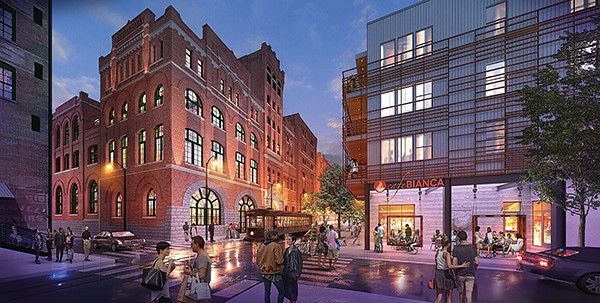
Tennessee Brewery
Construction crews have spruced up the old brewery, completed the parking garage across the street, and have raised the bones for the two other new apartment buildings that will complete the project.
The brewery building was saved from the wrecking ball in 2014, when developers bought it for $825,000. The planned mixed-use development will cost about $28 million.
Central Station
The 100-year-old train station at Main and G.E. Patterson is getting a major, $55-million makeover, and parts of that project will become visible in the new year. Construction of the new Malco movie theater on G.E. Patterson will begin in January as will the major improvements at the Memphis Farmers Market, including the construction of a more-permanent market plaza area that will front Front.
Work is in full swing on the new South Line apartment buildings on Front, which are expected to be completed in February. Design work has begun on the concourse area around Central Station, which will connect trolleys, buses, bike riders, and pedestrians with Central Station from Main Street, the South End, and Big River Crossing. Dirt should move on these projects in the next few months.
ALSAC/St. Jude Children’s Research Hospital & the Pinch District
No formal plans have been revealed for the St. Jude/ALSAC hospital campus or the long-dormant Pinch District. But one thing is clear, the plans are really big.
ALSAC/St. Jude officials say they are investing between $7 billion and $9 billion to expand the organizations’ facilities and operations. Leaders there say the newly expanded ALSAC/St. Jude will bring an annual $3.5 billion economic impact to the city.
The expansion is expected to bring about 1,000 new jobs, more beds for more patients, and officials hope to double the amount of patients in the hospital’s clinical trials.
The Pinch got $12 million in state funds this year. City leaders have promised to invest $25 million in the area with funds from the already-approved Tourist Development Zone. Again, no final plans for these infrastructure investments have been made public. City leaders wrapped up a series of public meetings on Pinch development last month.
Also Upcoming for 2017
The Hampline should break ground on a project to connect Broad and Tillman.
New plans for the skyline-changing One Beale project are expected to be revealed to city leaders.
Plans for upgrades at the Cook Convention Center should come into focus.
Work on a new luxury boutique hotel called Teller (with a rooftop bar called Errors and Omissions) on Madison should be finished.

Construction should begin on a new Hilton Garden Inn Downtown at the former Greyhound bus station site on Union.
The fully-restored Memphis Grand Carousel is expected to open at the Children’s Museum of Memphis.
The Memphis Bike Share program will launch with a networked system of 60 stations throughout Memphis — and about 600 bikes. — Toby Sells
Theater and Dance …
Prediction #1: You will see a lot more dance in 2017, even if you never go to the theater. All you have to do is go to the Overton Square area.
For years, Ballet Memphis has been hidden away on Trinity Road in Cordova where “street life” is limited to cars zipping by. “Transparency” was the word most frequently used by architect Todd Walker on a late November media tour of the construction site for Ballet Memphis’ new Midtown home on Overton Square, one of the city’s most heavily pedestrian areas. The 38,000 square-foot building will literally bring dance to the corner of Madison and Cooper.

Ballet Memphis
The Ballet’s new, glass-walled home has five studios, all linked together by a series of courtyards. It will house business offices, conference rooms, a physical therapy room, and an egg-shaped cafe. Dancers rehearsing in Studio A will be visible from the street.
There’s also limited retractable seating in Studio A, and an observation area. This brings the number of available stages in Memphis’ growing theater district to six. Eight if you include the Overton Square amphitheater and Circuit Playhouse’s cabaret space. Ballet Memphis has a long history of scheduling public rehearsals in places where they are accessible to pedestrians. This takes that idea a little further.
Prediction #2: You’ll see a lot more of everything else. Memphis’ performing arts community has been experiencing a growth spurt, and that trend promises to continue. The Hattiloo Theatre, which moved to its Overton Square facility in 2014, will complete its first expansion in 2017, creating additional rehearsal and office space. A little further to the west, Crosstown Arts will begin construction on a new, versatile 450-seat theater in the Crosstown Concourse community.
Byhalia, Mississippi, which co-premiered in Memphis last year, went on to become one of the best reviewed and most talked about new American plays of 2016. Memphis continues to cultivate its reputation as a fertile environment for new work with Playhouse on the Square’s January 6th world premiere of Other People’s Happiness, a family drama by Adam Seidel. Haint, a spooky rural noir by Memphis playwright Justin Asher gets its second production at Germantown Community Theatre starting January 27th.
Although she will continue to direct, Memphis’ Irene Crist will retire from the stage in June, following her performance in David Lindsay-Abaire’s comedy, Ripcord. — Chris Davis
Politics …
The year 2017 will be an off year as far as elections go, and the politics that really counts may happen in our state capital. The venerable (if indelicate) political adage that “money talks and bullshit walks” may come in for an overhaul in Nashville in 2017. The second term in that expression may, in fact, be on as firm a footing as the first.
For the second year in a row, the State Funding Board in Nashville is projecting a sizable budget windfall — stemming from an increase of almost $900 million in revenue growth for 2017-18. And for the second year in a row, the forecast of extra money is actually complicating, rather than facilitating, some overdue state projects — the most vulnerable of these being overdue infrastructure work on increasingly inadequate and dilapidated state roadways.
Governor Bill Haslam, who, with state transportation director John Schroer, went on a fruitless statewide tour in 2015 trying to drum up support for a state gasoline-tax increase, is almost certain to raise the idea of upping the gas tax when the General Assembly reconvenes in January.
But the projected revenue windfall may actually undercut his hopes. Not only does all the windfall talk create a difficult atmosphere to talk about new taxes. There are also indications that the governor’s Republican party-mates in the GOP legislative super-majority see the dawning surplus as an excuse to dream up new tax cuts and eliminate existing ones — a double whammy that would sop up such financial gain as actually materializes.
Democratic legislators (five in the 33-member state Senate and 25 in the 99-strong state House of Representatives) are too few in number to do much about the matter, and even some members of the Republican majority are troubled. State Representative Ron Lollar (R-Bartlett) touched on the problem at a recent forum of the National Federation of Independent Businesses (NFIB) in Memphis, when he lamented that the ongoing elimination of the state’s Hall tax on interest and dividends — slated for staged reductions and final abolition over a five-year period — will mean the ultimate loss to financially struggling local governments of the fairly significant portion of the Hall tax proceeds that they are accustomed to getting annually.
At that same NFIB meeting, state Senator Lee Harris of Memphis, leader of the Democratic minority in his chamber, pointed out another fiscally related conundrum that he thinks has escaped the consciousness of the GOP super-majority.
In their categorical rejection of Haslam’s “Insure Tennessee” proposal to permit state acceptance of federal funding of as much as $1.5 billion annually for Medicaid expansion under the Affordable Care Act (Obamacare), Republican leaders like retiring state Lieutenant Governor Ron Ramsey always said their attitudes would likely be different under a Republican president, who would surely reapportion such funds as block grants for the states to dispose as they saw fit.
Harris maintains that the new block grants would be converted from the previous A.C.A. outlays and could be extended only to those states that had already opted for the federal funding. The truth could be even harsher; with congressional Republicans and President-elect Donald Trump both having sworn to “repeal and replace Obamacare” as a first order of business in 2017, it is uncertain just how much federal bounty — if any at all — would actually be available for the states, in whatever form.
Money is at the root of another pressing issue sure to be vented in the General Assembly. At the very moment that the state’s short-changed urban school districts, including the Shelby County Schools system, are entertaining a variety of legal actions to force the state to honor full-funding commitments to them under the Basic Education Program (BEP), word is that enough steam may have finally gathered among legislators to allow passage of long-deferred school voucher legislation that would re-route a significant proportion of the state education budget toward private institutions and out of public schools altogether.
Under the circumstances, even a rumored bipartisan willingness among legislators to at least begin the consideration of medical-marijuana legislation may not be enough to ease such doldrums as continue to afflict the state’s population. — Jackson Baker
Food and Dining …
Old Dominick
For those keeping your eye on the Old Dominick Distillery, Alex Canale tells us, “We’re 100 percent, well, 99 percent, sure we’ll be open by late spring. We’ll definitely be open in 2017.”
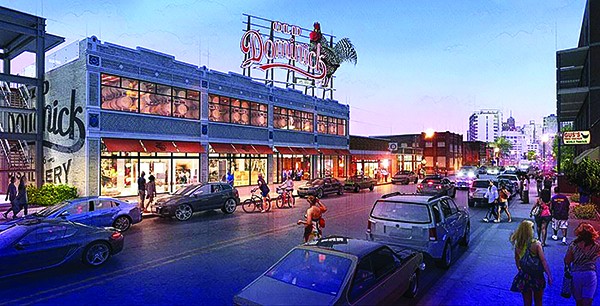
Old Dominick
Old Dominick will sell bourbon, a nod to forebear Dominico Canale. There will be a tasting room, and the distillery will be open for tours. Construction is currently wrapping up, and all licenses have been secured. Shipments of grain and malt are currently on the way. Bourbon takes a few years to age, so Old Dominick will be selling vodka at first. They hope to have stock ready to sell by the spring.
Sunrise
The breakfast concept by Sweet Grass’ Ryan Trimm and Central BBQ’s Craig Blondis and Roger Sapp now has a name: Sunrise. They hope to have both places — one on Central, one on Jefferson — up and running by January or February. The Central location will serve breakfast from 5 to 11 a.m. and then switch to a Central BBQ to-go. The Jefferson location will open at 5 a.m. as well and will serve lunch.
Trimm says the coffee program they’ve come up with is particularly impressive. Cold-pressed and nitro will be on the menu, as well as “normal hot coffee.”
“The biscuit sandwiches will be more interesting than your typical sausage and egg biscuit,” says Trimm. Think bologna and house-cured meats and house-made sausage.
The lunch at Jefferson will offer hometown cooking and large sandwiches piled high with house-cured meats. The meats will also be available for purchase.
Crosstown Concourse
The Crosstown Concourse will be one of the biggest food stories of the upcoming year. The revitalized Sears building already has a stellar list of food and drink venues: I Love Juice Bar, Next Door, Mama Gaia, French Truck Coffee, Curb Market, Crosstown Cafe, and Crosstown Brewing Company.
“Our vision was to curate a really great mix of offerings to add to the food scene,” says Crosstown’s Todd Richardson. Richardson says that about 65 percent of the retail space has been rented. He’s in talks with what he calls a “really great ice cream concept” and a pizzeria.
With all that plus a bank and barber and apartments, it seems like there would never be a reason to leave the Concourse. Richardson says that’s not the goal at all. “We’re not trying to create a city within a city. We want something that draws interest and has the greatest impact on the neighborhood.”
South Main Market
Shooting for a summer opening is the South Main Market. Rebecca Dyer has been busy converting the building at 409 S. Main into an event venue. Once she has the third floor ready, she’ll then re-renovate the first floor into the market. (“If I survive,” she says.)
The market will feature 12 to 15 kitchens. Think Boston’s Faneuil Hall. Dyer says she’s already got 11 chefs signed on, all local. “It’s going to be very varied,” says Dyer. That means each kitchen will serve a distinct cuisine — no three cupcake spots or duplicate falafel shops.
“We don’t want our chefs to compete with each other,” Dyer says. “We want to give our customers the best opportunity for dining.”
The Liquor Store
Lisa Toro, who owns City & State with her husband Luis, estimates that 50 percent of the businesses on Broad Avenue are owned by women. In that ladies-doing-for-themselves can-do spirit, Toro helped form an all-woman angel investment group. Their first investment is the Toros’ latest project The Liquor Store.
Toro describes it as a modern take on a diner. There will be blue-plate specials but with cured meats and fresh vegetables. There will be a bar as well, offering boozy milkshakes and soda fountain cocktails. The diner is being carved out of an old liquor store space. Floors are being ripped up, electrical and plumbing added.
The Toros hope to be open by early spring. — Susan Ellis
Film …
It’s safe to say that 2016 was a less than stellar year in the world of film. Will 2017 be better? Early signs point to probably not. The slate of announced films for the year so far is more of the same: Franchises, sequels, reboots nobody but a branding specialist could possibly want, and superheroes, superheroes, superheroes.
In January, a few 2016 films currently in limited release will make it to Memphis, such as Hidden Figures, starring Taraji P. Henson and Janelle Monáe as unsung black women engineers and mathematicians who helped America land on the moon, and A Monster Calls, a modern Irish fairy tale about loss and grieving. Then there’s Monster Trucks, a big-budget film so bad Paramount took a preemptive $100 million write-down on their earnings report. I have to see it, but there’s no reason you should.
In February, the pop S&M sequel Fifty Shades Darker is sure to both light up the box office and contribute to this reviewer’s depression. Hopefully The Lego Batman Movie will cheer me up. If that doesn’t work, there’s the Oxford Film Festival, which just announced a stellar lineup, and Indie Memphis’ new Indie Wednesday series, which will bring in quality arthouse and indie films from all over the world to Studio on the Square, Malco Ridgeway, and Crosstown Arts.
March brings Logan, Hugh Jackman’s final turn as X-Man Wolverine; Kong: Skull Island, a King Kong spinoff with an all-star cast; and the controversially Scarlett Johansen-led anime adaptation Ghost in the Shell. In May, the Marvel drought ends with Guardians of the Galaxy Vol. 2, which will be answered in June by DC’s Wonder Woman movie. Pixar’s weakest series, Cars, gets a third installment before Marvel fires back with Spider-Man: Homecoming, which looks promising in previews. Later that month, I’m looking forward to War for the Planet of the Apes, which concludes the underrated Planet of the Apes reboot trilogy, and the Stephen King epic The Dark Tower.
All I know about August’s Baby Driver is that Edgar Wright of Scott Pilgrim fame is directing, but that’s enough to get me excited. September looks bleak except for the unexpected remake of the ’90s cult film, Flatliners, and the only oasis in the wasteland of October is Denis Villeneuve directing Harrison Ford in Blade Runner 2049.
November will kick off with the Indie Memphis Film Festival, before Marvel and DC go at it again with Thor: Ragnarok and Justice League. The holidays will bring the as yet untitled Star Wars: Episode VIII, directed by Breaking Bad badass Rian Johnson, and Mark Wahlberg going bionic in The Six Billion Dollar Man.
Basically, the year in film will be like everything else in 2017: Hope for the best, cherish the bright spots, but expect the worst. — Chris McCoy
Music …
As productive as this year was for Memphis music, you can expect 2017 to be just as fruitful for the local scene. From where to be to who to watch, here are some early tips for following Memphis music in 2017.
What to Buy and Why:
Valerie June will be releasing her new album, The Order of Time, on January 27th, her third full-length and first for Concord Music Group. June recently toured with Sturgill Simpson and Norah Jones, but she’ll come back home for a show at the Hi-Tone on Friday, February 17th. As for her new album, the song “Astral Plane” is already being heralded by NPR, which is a good indication that the three years that have passed since Valerie June released an album weren’t in vain. Expect big things in 2017 from one of our city’s most intriguing songwriters.

Another band with a considerable amount of hype behind them that’s releasing a record in 2017 is Aquarian Blood. The band’s debut effort will be released through Goner and is expected to be out in February. Aquarian Blood has released singles on Goner and New Orleans label Pelican Pow Wow, but their first LP has been months in the making, and should showcase the Midtown supergroup and musical freak show.
Southern Avenue is also set to release a new record in 2017, after burning up the Midtown bar circuit with their take on modern Memphis soul. Their debut record is coming from the fine folks at Stax. Being promoted as the first Memphis band to be signed to Stax since the ’70s, you can expect Southern Avenue to kill it in 2017, but don’t count on the band being in town very often.
Where to Be
The FedExForum has an impressive lineup early next year, including the Red Hot Chili Peppers on January 12th and Garth Brooks doing an entire weekend February 2nd-4th . Minglewood also continues to impress, with Lil Boosie, Juicy J, and Ben Folds all scheduled to play in the first few months of the new year. You can also expect shows to start cropping up at both the Galloway House and the Clayborn Temple downtown, and don’t forget about the excellent River Series at the Maria Montessori School; the laid-back, all-ages shows are becoming a staple for live music enthusiasts. And you can always catch a good mix of local and traveling talent at Overton Square and on Beale Street.
Memphis music will be well represented at the largest music festival on planet Earth — South by Southwest — this year. Music Export Memphis will host the Memphis Picnic at SXSW on March 14th in Brush Square Park. The lineup is still being finalized — expect an announcement around mid-January — but the event promises a totally Memphis experience, complete with the Amurica photo trailer booth and Gus’s Fried Chicken on site. — Chris Shaw
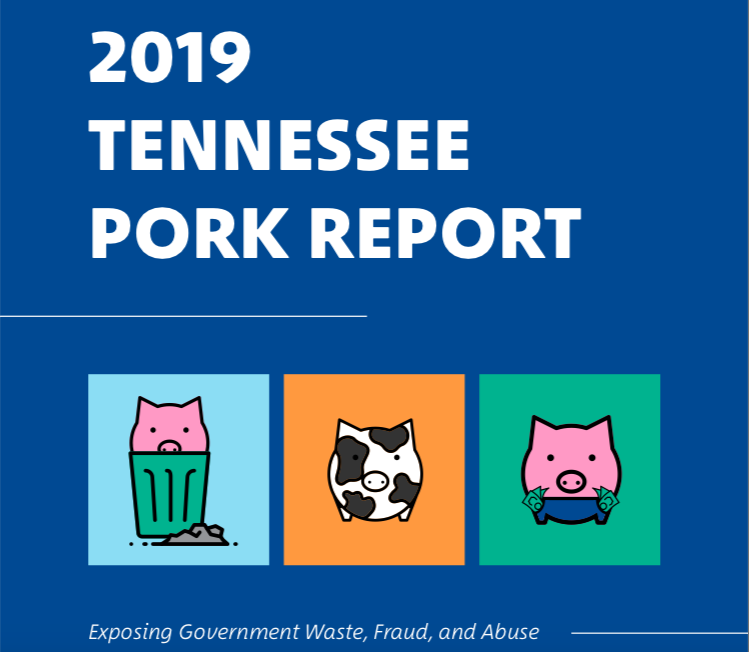 Beacon Center of Tennessee
Beacon Center of Tennessee  LRK/FedEx Logistics
LRK/FedEx Logistics  Jake Giles Netter/NBC
Jake Giles Netter/NBC 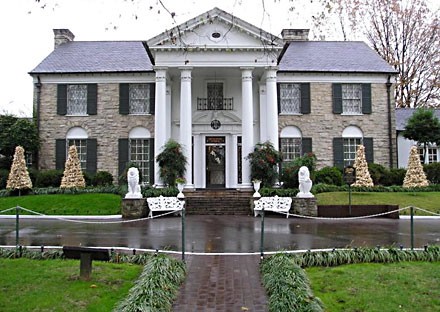
 Wiseacre Brewing Co.
Wiseacre Brewing Co. 
 Tennessee Arts Commission
Tennessee Arts Commission 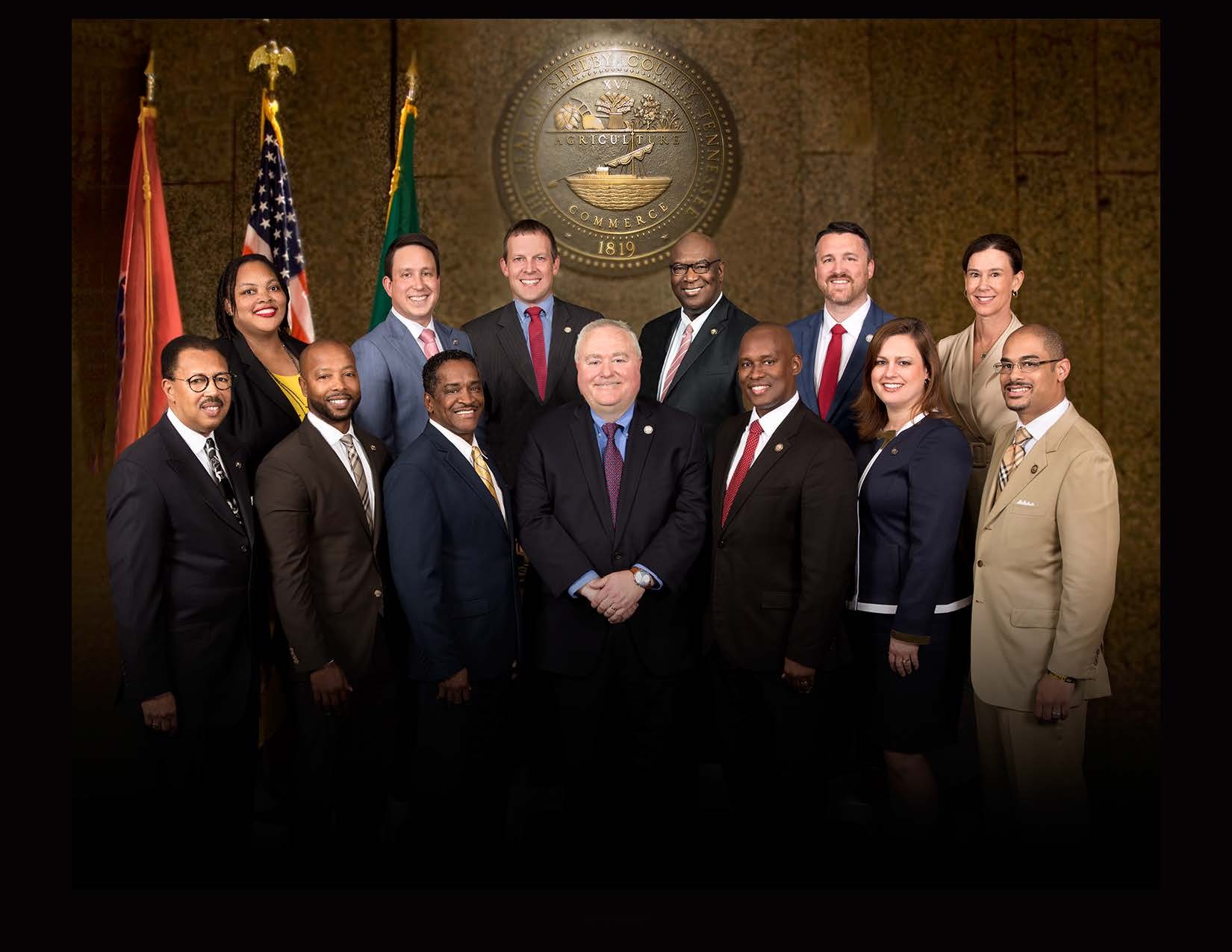 Shelby County Commission
Shelby County Commission 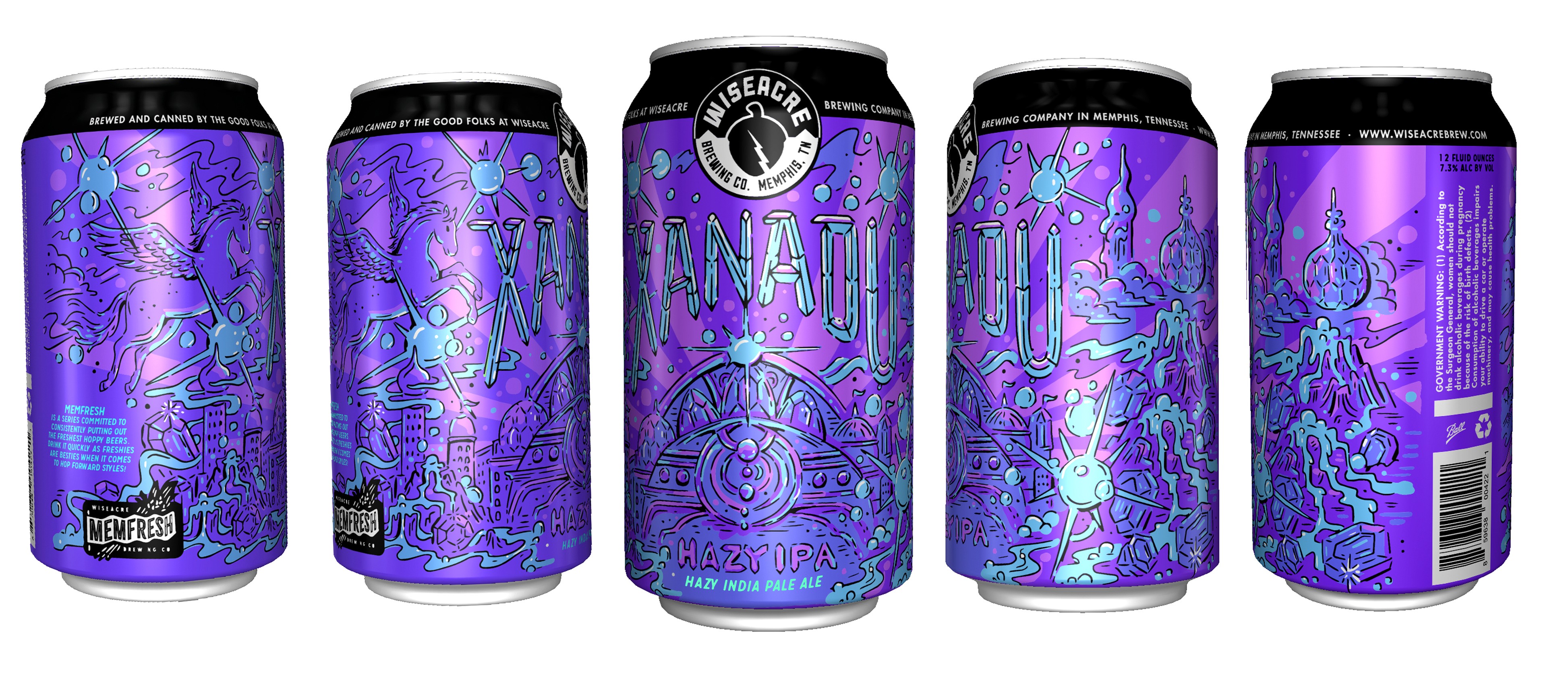 Wiseacre Brewing Co.
Wiseacre Brewing Co. 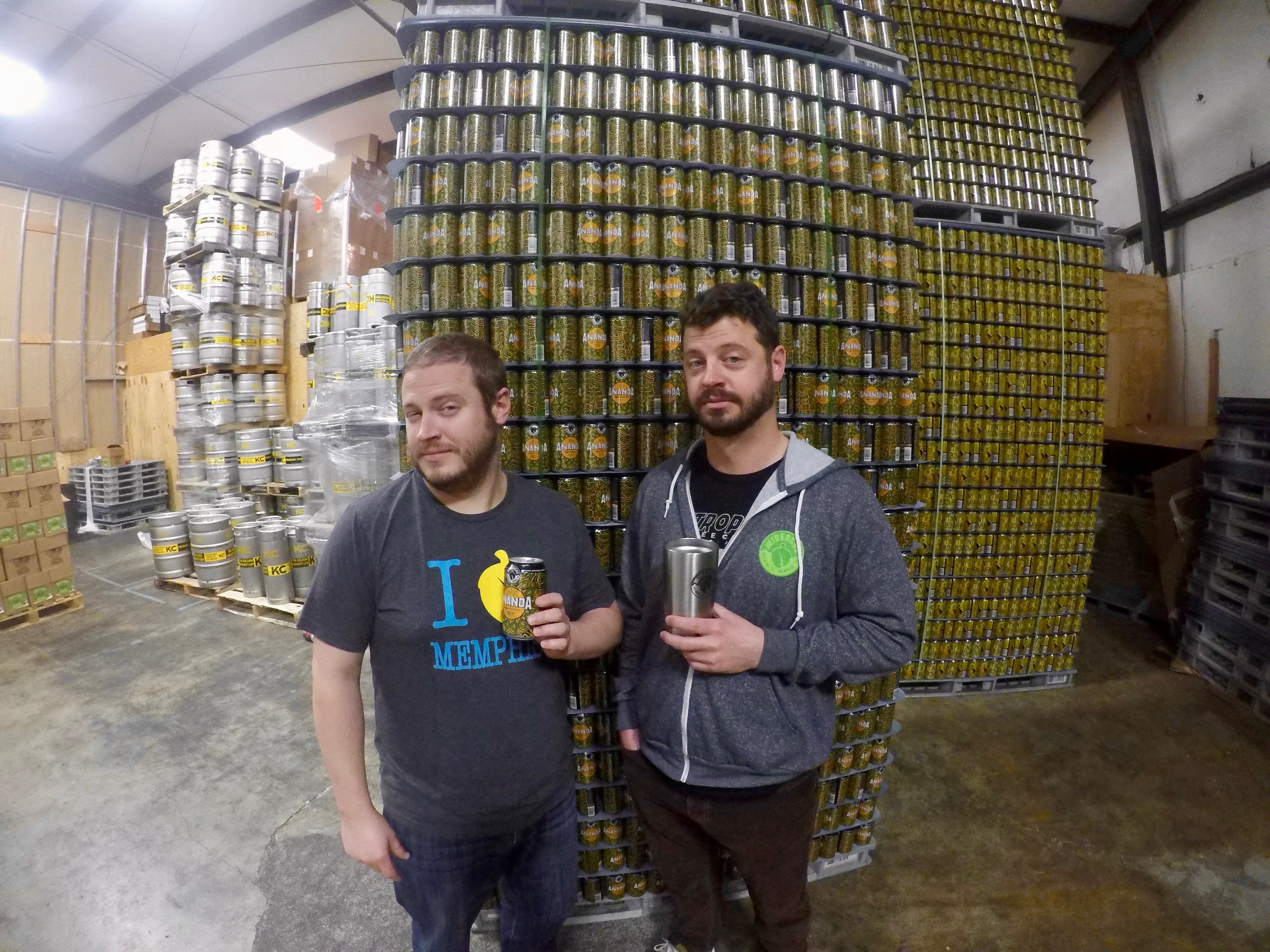 Toby Sells
Toby Sells 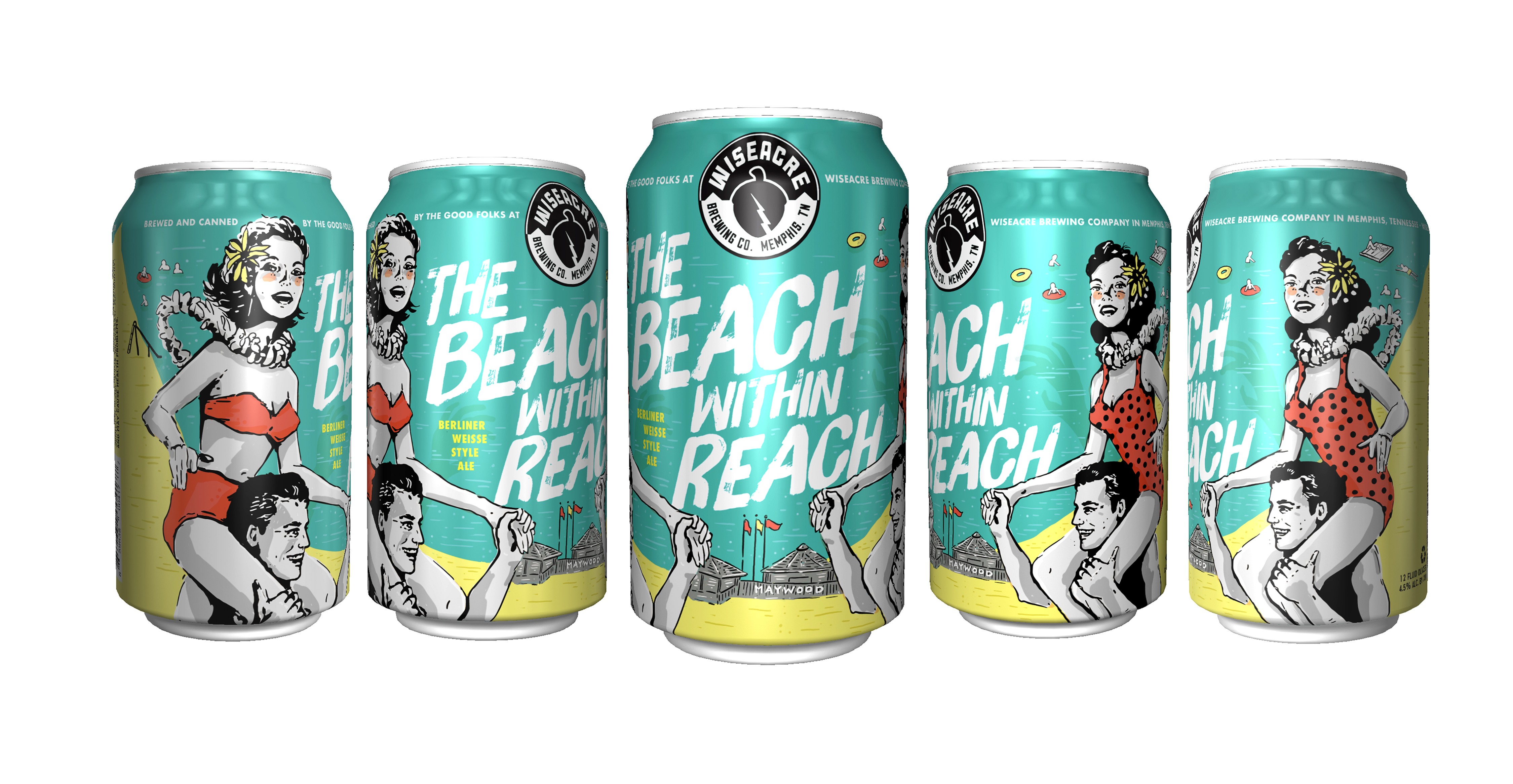 Wiseacre Brewing Co.
Wiseacre Brewing Co. 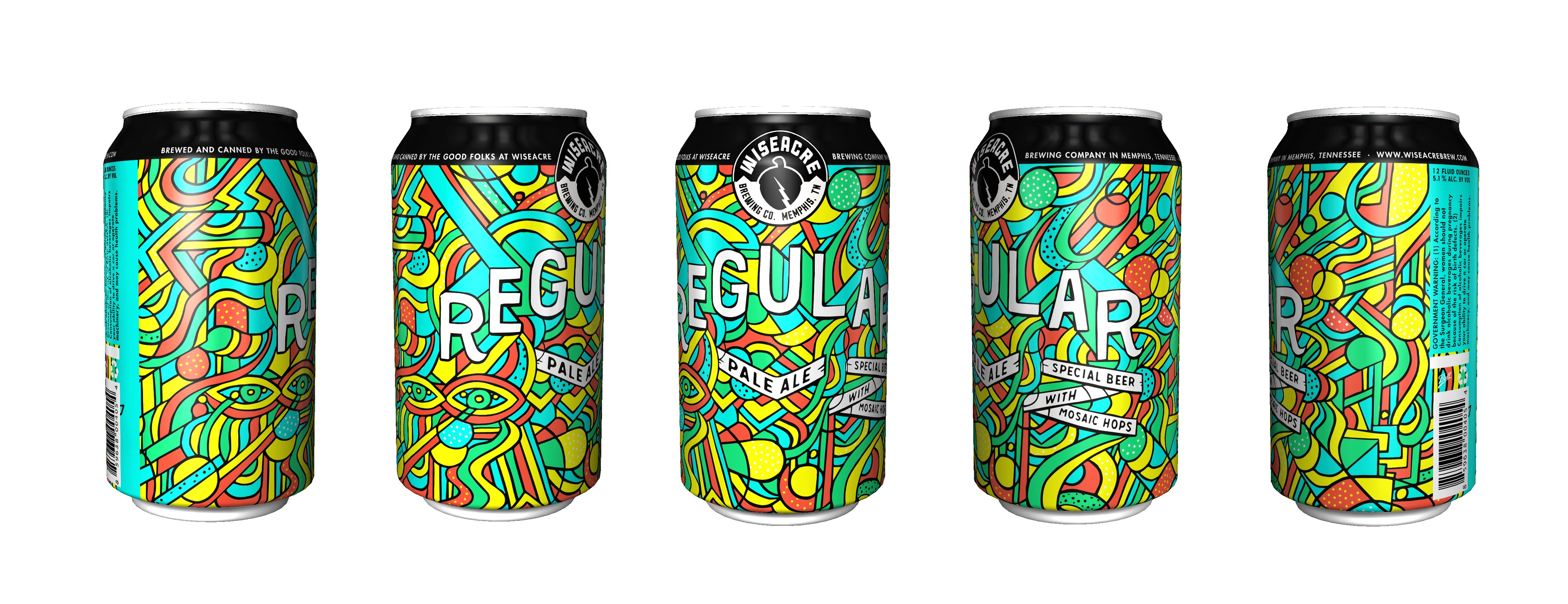 Wiseacre Brewing Co.
Wiseacre Brewing Co.  Wiseacre Brewing Co.
Wiseacre Brewing Co.  Wiseacre/Instagram
Wiseacre/Instagram 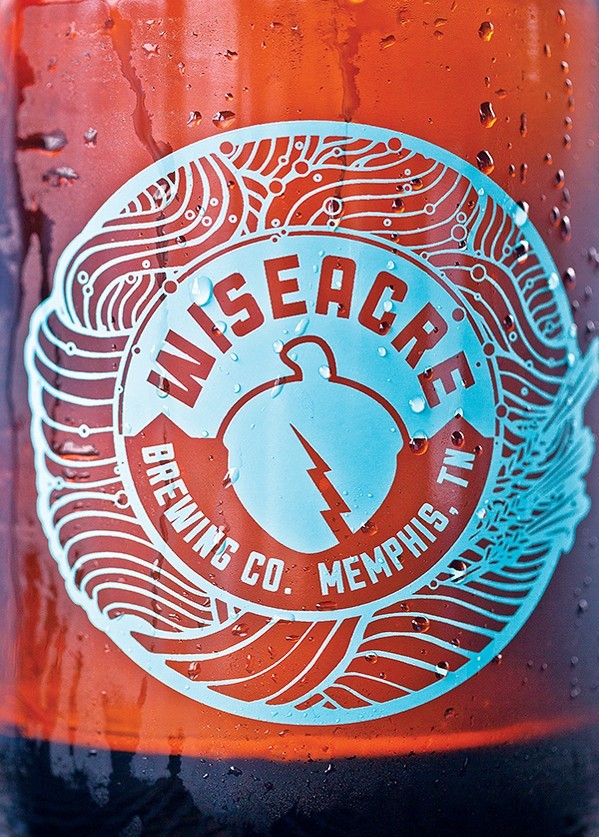
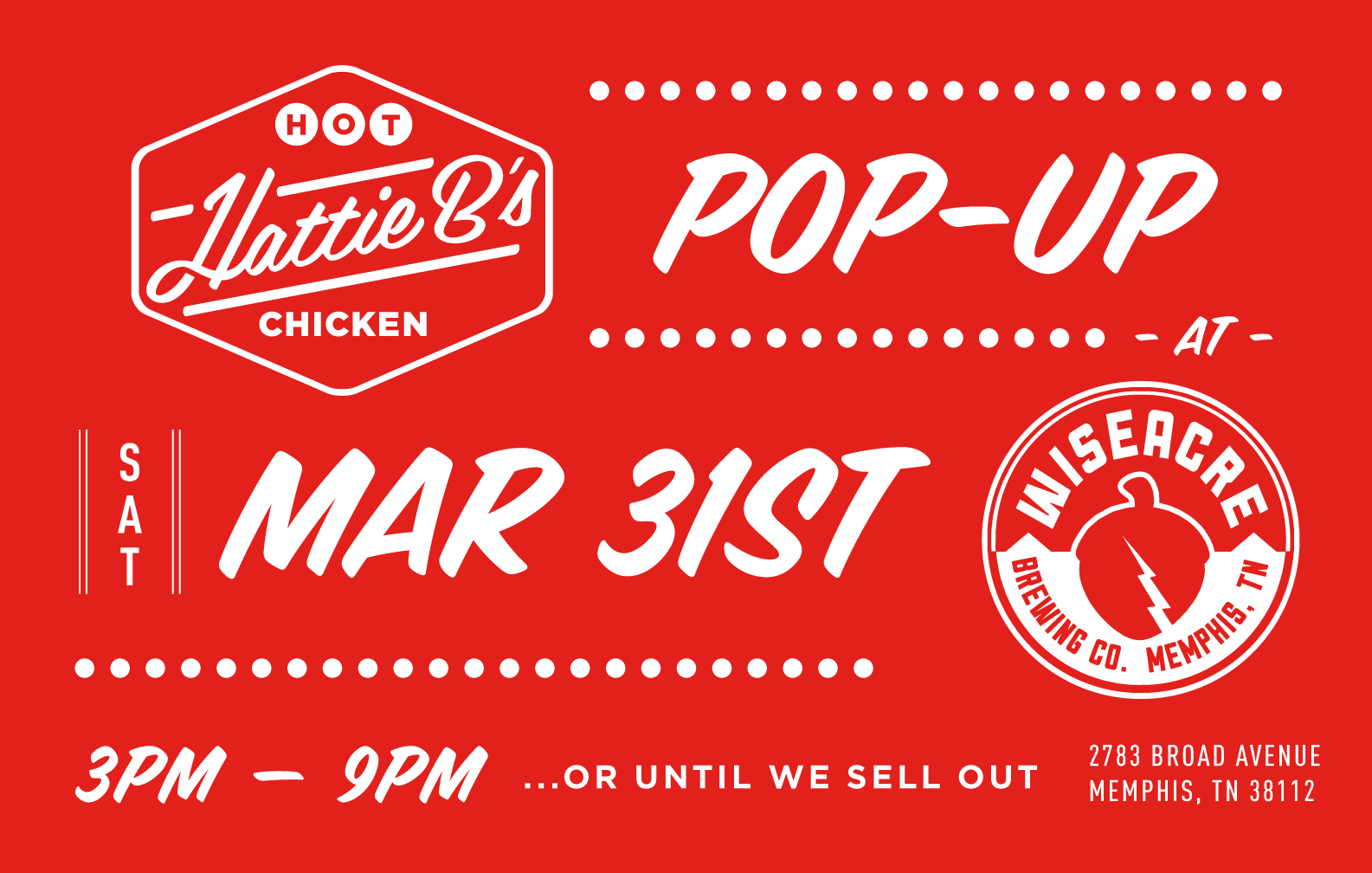
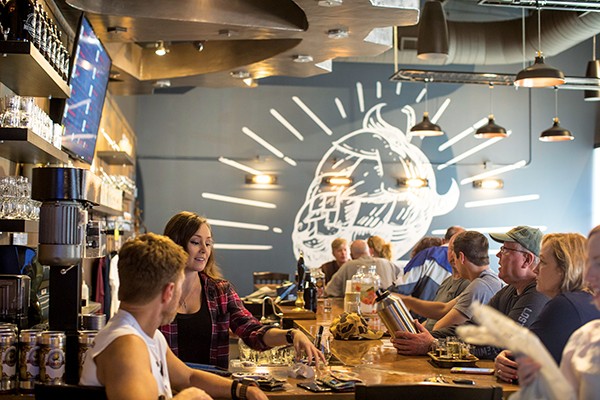
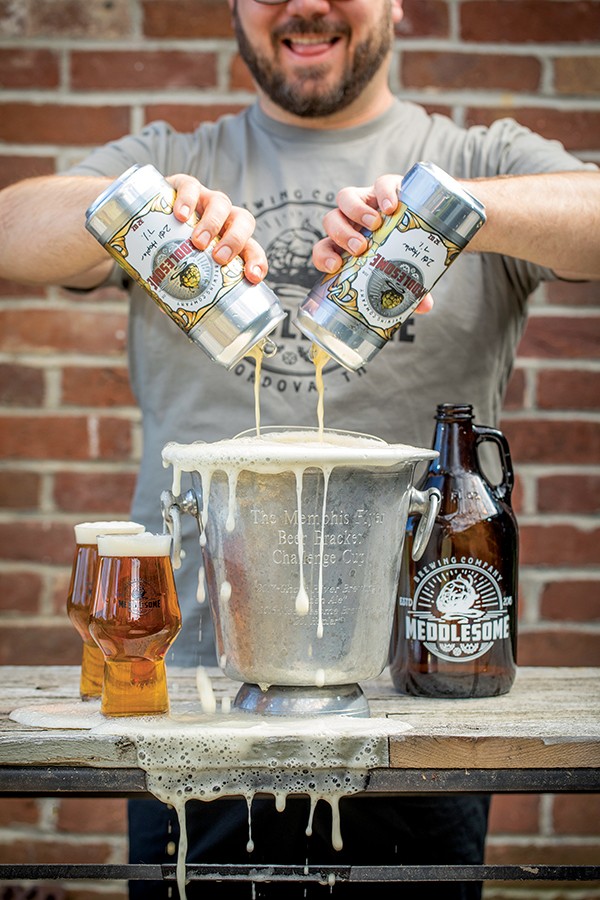

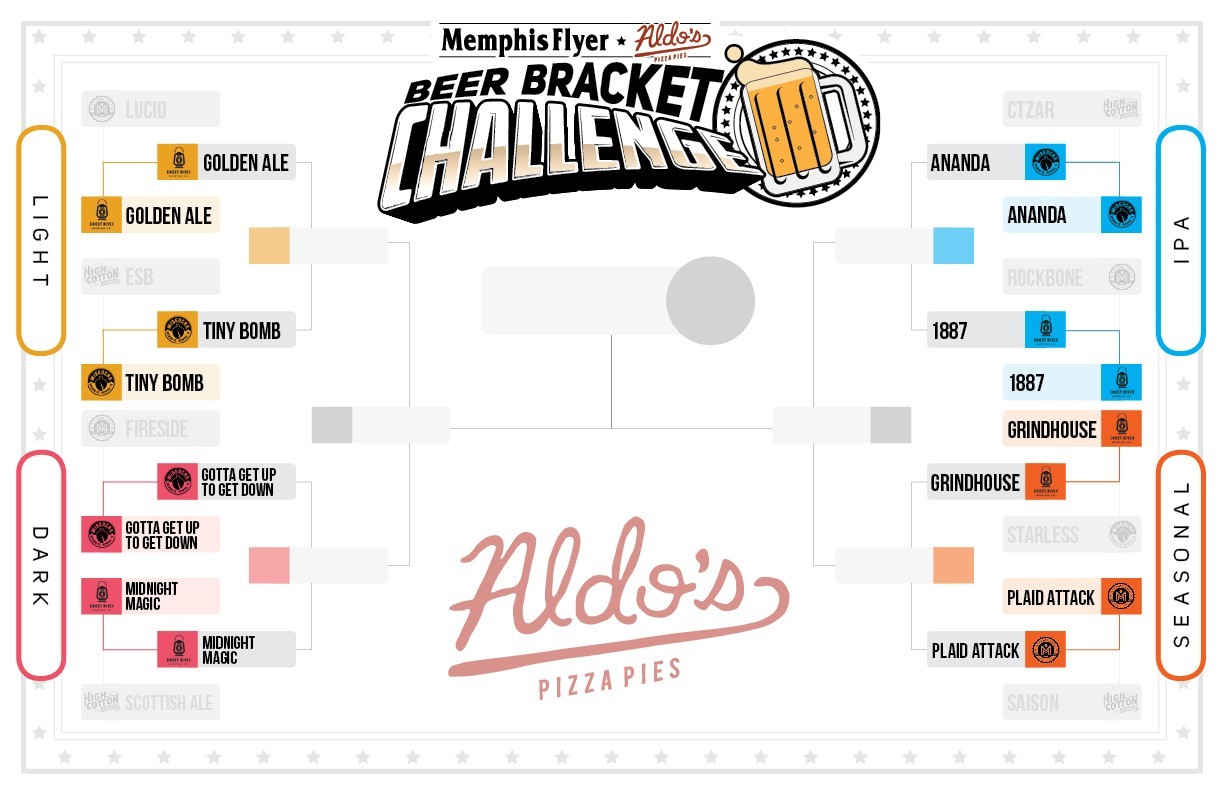
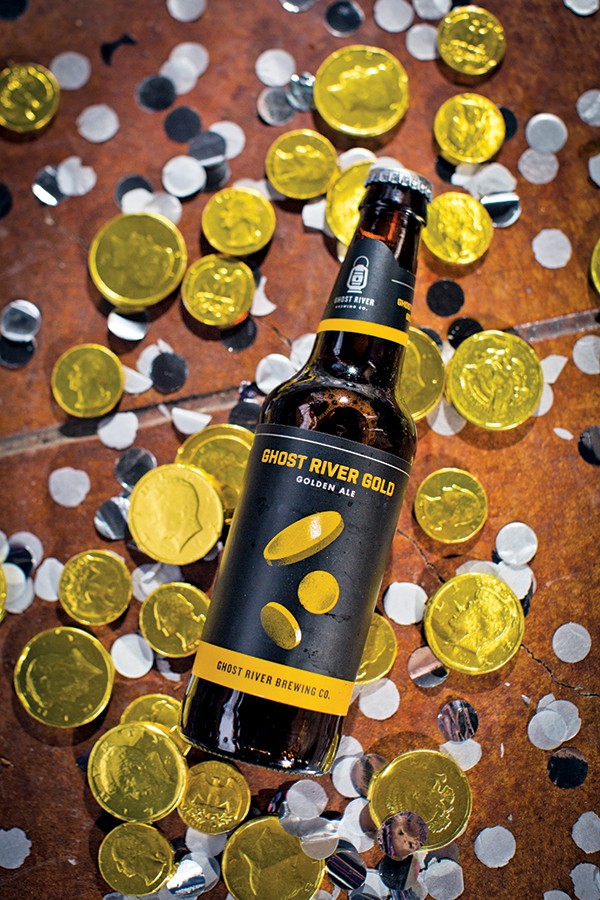 Justin Fox Burks
Justin Fox Burks 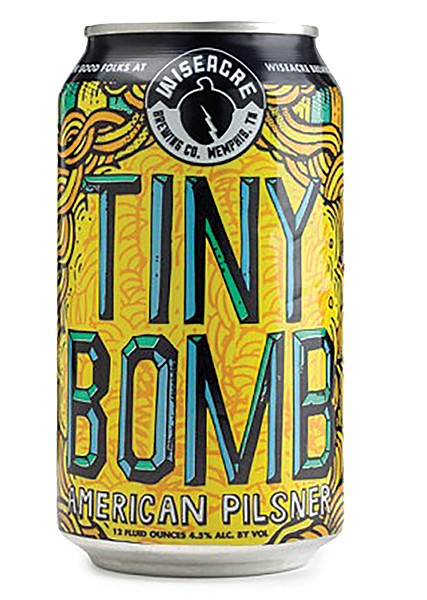
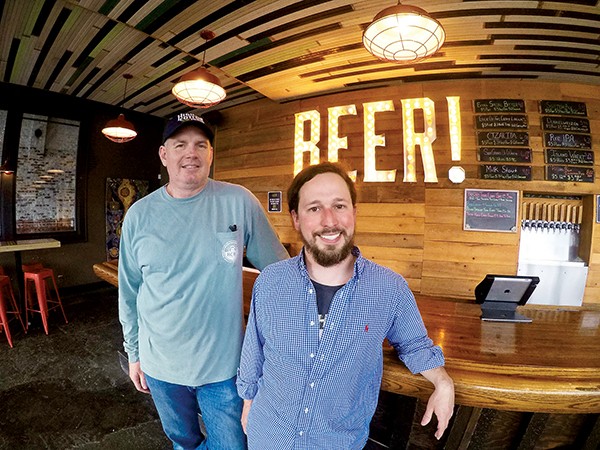 Toby Sells
Toby Sells  Toby Sells
Toby Sells 






